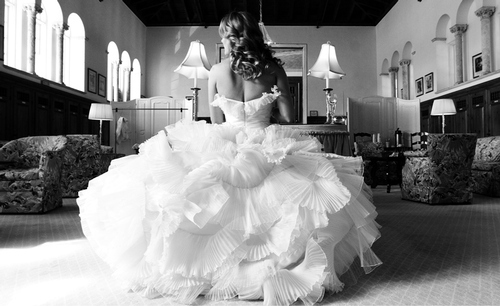“And behold, a man came up to him, saying, “Teacher, what good deed must I do to have eternal life?” And he said to him, “Why do you ask me about what is good? There is only one who is good. If you would enter life, keep the commandments.” He said to him, “Which ones?” And Jesus said, “You shall not murder, You shall not commit adultery, You shall not steal, You shall not bear false witness, Honor your father and mother, and, You shall love your neighbor as yourself.” The young man said to him, “All these I have kept. What do I still lack?” Jesus said to him, “If you would be perfect, go, sell what you possess and give to the poor, and you will have treasure in heaven; and come, follow me.” When the young man heard this he went away sorrowful, for he had great possessions.” -Matthew 19:16-22

When Jesus revealed the rich man’s need, he stood back, aghast at the request. How? How could he give up everything? What kind of benevolent Messiah would ask that of his followers? He worked hard for what he had and no loving God who would make that a prerequisite for entrance into his Kingdom. Surely it is the law that holds the power of salvation! Surely i’m a good person, surely…I am serious, and don’t call me Shirley.
Jesus looked at the disciples and claimed that “It is harder for a rich man to enter God’s kingdom than for a camel to go through the eye of a needle.” As his disciples scratched their heads at this, wondering how their Master could endorse such a narrow way, Jesus said that those who would inherit eternal life would be those who left everything behind for him.
My quasi-Christian American civil religion doesn’t allow for this kind of cognitive dissonance. We want to take up our platforms and raise rabble over so much, but when Jesus’ words hit us squarely between the eyes and challenge and provoke us, we are more apt to close the Book and go on with the way we like, as we have done many times before.
I don’t believe that Jesus is slandering the rich or diminishing God’s goodness with his strong words. I believe he is illustrating the law apart from grace, he is decrying selfishness and raising rabble about our tricky penchant for idolatry.
I grew up in a loving supportive Christian family where my Mom and Dad were both present and loved God with reckless abandon and, in many ways, raised me to fall in love with Jesus and to truly believe what he says. I grew up in a youth group where for many kids, this was not the case. I have since ministered in youth groups where this was not the case. And you know what? I love those kids.
One of my favorite things about them is that they are abundantly aware of their need. They are well acquainted with their brokenness and their doubts. There’s so much that I want them to know about the Gospel and selflessness and truly taking hold of the life God is calling them to, and that can be very very difficult at times. But I don’t have to convince them that they are desperately in need of a savior. They are so aware of that. And there’s a lesson in that.
The rich man walked away from Jesus because he wanted the Kingdom of God as a sort of side item in a combo meal he paid for with his “good” works. I want my wealth, my security, my self-assuredeness of works righteousness and if that’s good enough for my perfect life, that is good enough for eternal life.
And Jesus stood in the face of that flimsy theology and spoke directly to his need that he would not admit he had. Our pride swells and our spirituality buckles under the weight of the brokenness we believe we are hiding.
It has been an unbelievably difficult week for me. My friend Max went to heaven on Friday. My mother found out that she has cancer in one of her kidneys. That mocking voice in the back of my mind has been whispering threats and doubts and insults and hurling me to the conclusion that I am powerless to stop the tides from pulling me under and filling my lungs with water, but you know what? God has revealed to me in all of this that I am powerless. I am irreconcilably broken and I have not arrived and I will not arrived until the day I embrace my Jesus in his Kingdom.
It is out of our abundant need that the seed of the gospel is watered and grows. It is in having the humility to admit that we are broken beyond any repairs we could complete ourselves and must look outside of ourselves for the truth of Jesus to hit us squarely between the eyes and cut us deep.
My friend Max was one of the most humble people I’ve ever met. He lived his life without fear of failure because he knew who was holding him. Before he died, he wrote a note in the hospital about how he picked up his Bible and hugged it to himself. “The very Word of God is heavy on my chest,” he penned. Max, at any moment’s notice, would’ve been willing to sacrifice everything to be in the will of God. He spoke boldly to others about the love of Jesus. He figuratively had the very Word of God heavy on his chest at all times.
So in brokenness we find respite.
In loneliness, we are comforted by God’s very breath.
In adversity, we rise stronger than before we were knocked down.
In humility, considering others as better than ourselves.
In obedience, denying ourselves, picking up our cross, and following Jesus, wherever he leads and laying whatever he says aside for the sake of the Gospel.
We are all in desperate need. We all have brokenness coursing through our veins and to say otherwise is to deny the fundamental realization that brings us to Jesus in the first place. We are beset, but our completeness is in Christ alone.




